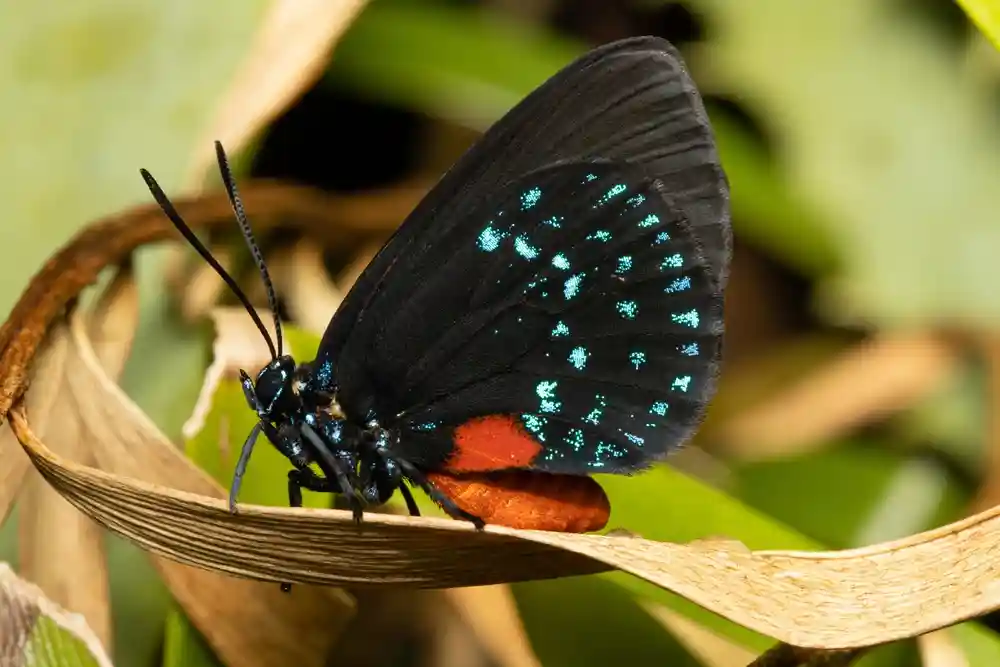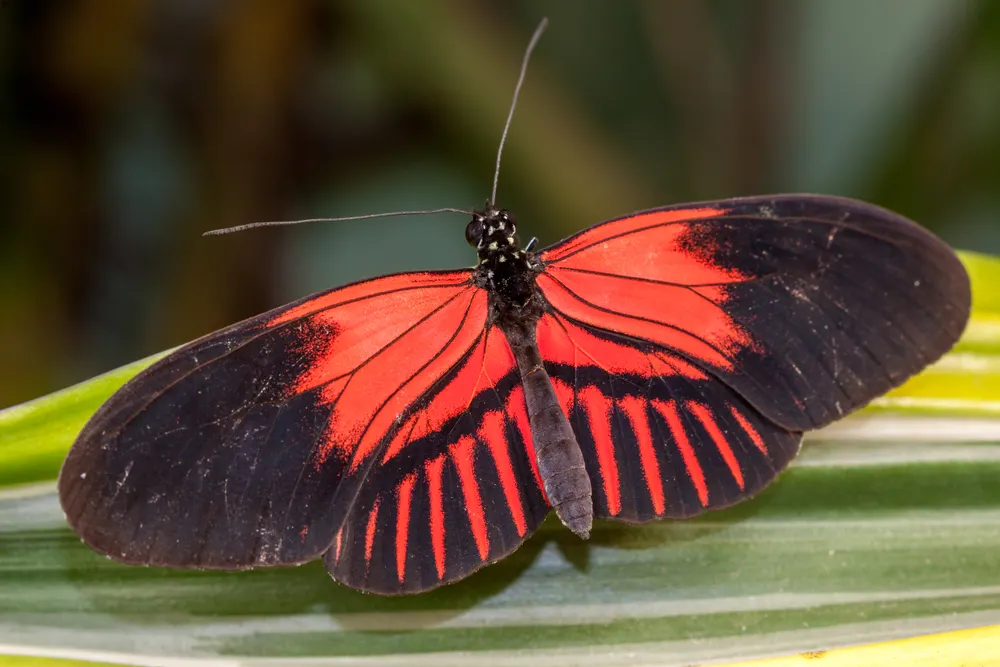Giant Blue Swallowtail (Papilio zalmoxis)
The Giant Blue Swallowtail, a majestic species of African butterfly, captivates enthusiasts and scholars alike with its impressive size and vibrant coloration. Native to various African countries, this butterfly’s lifecycle, from the larval stage known as ‘orangedog’ to its splendid adult form, showcases a fascinating journey of transformation and beauty. As a subject of both admiration and agricultural concern, the Giant Blue Swallowtail offers a unique glimpse into the complex interplay between nature’s artistry and its challenges.
Scientific Classification
- Family: Papilionidae
- Genus: Papilio
- Scientific Name: Papilio zalmoxis
Overview
Belonging to the rich tapestry of African wildlife, the Giant Blue Swallowtail (Papilio zalmoxis) stands out for its striking visual appeal and ecological role. This butterfly species thrives in a range of habitats, from tropical forests to open woodlands, playing a crucial role in pollination while its larvae pose interesting dilemmas for citrus plant growers. Understanding its life stages, from egg to adult, provides valuable insights into its survival strategies and the delicate balance it maintains within its ecosystem.
Description and Identification
Caterpillar
The caterpillar stage of the Giant Blue Swallowtail is marked by a robust body, adorned with white and light brown stripes that create a mesmerizing zigzag pattern. This visual complexity is further enhanced by a pair of striking orange antennae, signaling a blend of beauty and warning to potential predators.
Pupa
Transitioning to the pupa stage, this butterfly’s chrysalis exhibits a light brown hue, textured with rough, uneven markings. Suspended by a single silk thread, it embodies a phase of vulnerability and anticipation as it prepares for its final metamorphosis.
Adult Butterfly
Sexual Dimorphism: Moderate sexual dimorphism characterizes the adult stage, with males and females displaying distinct differences in coloration and size, a phenomenon that adds another layer of intrigue to their study.
Color and Appearance: The male’s forewings dazzle in cyan blue, contrasted by black tips and venation, while the hind wings echo this cyan brilliance, accented by a series of blue spots and dark, wavy edges. Females, on the other hand, present a more subdued palette of grayish white and red-brown, with patterns and textures that are equally complex and captivating.

 Average Wingspan: Spanning an impressive 12–16 cm (4.7–6.3 in), the Giant Blue Swallowtail’s wingspan is a testament to its name, facilitating a slow, erratic flight pattern that enchants observers.
Average Wingspan: Spanning an impressive 12–16 cm (4.7–6.3 in), the Giant Blue Swallowtail’s wingspan is a testament to its name, facilitating a slow, erratic flight pattern that enchants observers.
Flight Pattern: Its flight, characterized by slow, erratic movements, adds to the butterfly’s ethereal presence, making each sighting a memorable event.
Eggs
The life cycle begins anew with the laying of round, whitish eggs, delicately placed one at a time on the leaves of host plants, hinting at the butterfly’s meticulous nature and the start of a new generation.
Quick Facts | |
| Distribution | Common across Nigeria, Gabon, Liberia, Ghana, Cameroon, Zaire (now the Democratic Republic of the Congo), Ivory Coast, and the Democratic Republic of the Congo. |
| Habitat | Thrives in tropical forests, woodlands, open lands, and forest edges. |
| Lifespan of Adults | Ranges from 6 to 14 days. |
| Host Plants | Prefers the leaves of the sweet orange plant and native citrus family members. |
| Adult Diet | Primarily feeds on flower nectar. |
How to Identify Giant Blue Swallowtail?
Identifying the Giant Blue Swallowtail is a delightful challenge for butterfly enthusiasts. Key characteristics to look for include the large wingspan and the unique color patterns distinguishing males from females. Males boast vibrant cyan blue wings with black tips and veins, while females exhibit a more subdued grayish-white and red-brown color scheme. The distinct flight pattern of this species, slow and erratic, coupled with its preference for certain host plants like the sweet orange, can also aid in identification. Moreover, the striking appearance of its caterpillar, with white and light brown stripes and bright orange antennae, provides early clues to the butterfly’s presence in a habitat.
Did You Know?
- The Giant Blue Swallowtail is among the rare butterfly species where females are smaller than their male counterparts, defying common expectations.
- The species is named ‘Zalmoxis’ after a deity revered by the Getae people of the lower Danube region, highlighting a deep cultural reverence that transcends geographical and temporal boundaries.
- Despite its brief adult lifespan, this butterfly’s impact on its ecosystem is significant, underscoring the importance of each stage of its life cycle in maintaining biodiversity.
Conclusion
The Giant Blue Swallowtail is more than just a beautiful butterfly; it’s a symbol of nature’s intricate designs and the delicate balance of ecosystems. Its journey from egg to splendid adult, against the backdrop of Africa’s diverse habitats, offers endless opportunities for observation, research, and conservation. By appreciating and understanding this remarkable species, we can foster a deeper connection with the natural world and the myriad of life forms that inhabit it, ensuring their preservation for generations to come.






